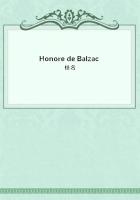Philippa and Helen started, a few mornings later, for one of their customary walks. The crystalline October sunshine, in which every distant tree and, seaward, each slowly travelling steamer, seemed to gain a new clearness of outline, lay upon the deep-ploughed fields, the yellowing bracken, and the red-gold of the bending trees, while the west wind, which had strewn the sea with white-flecked waves, brought down the leaves to form a carpet for their feet, and played strange music along the wood-crested slope. In the broken land through which they made their way, a land of trees and moorland, with here and there a cultivated patch, the yellow gorse still glowed in unexpected corners; queer, scentless flowers made splashes of colour in the hedgerows; a rabbit scurried sometimes across their path; a cock pheasant, after a moment's amazed stare, lowered his head and rushed for unnecessary shelter. The longer they looked upwards, the bluer seemed the sky. The grass beneath their feet was as green and soft as in springtime. Driven by the wind, here and there a white-winged gull sailed over their heads,- a cloud of them rested upon a freshly turned little square of ploughed land between two woods. A flight of pigeons, like torn leaves tossed about by the wind, circled and drifted above them. Philippa seated herself upon the trunk of a fallen tree and gazed contentedly about her.
"If I had a looking-glass and a few more hairpins, I should be perfectly happy," she sighed. "I am sure my hair must look awful."
Helen glanced at it admiringly.
"I decline to say the correct thing," she declared. "I will only remind you that there will be no one here to look at it."
"I am not so sure," Philippa replied. "These are the woods which the special constables haunt by day and by night. They gaze up every tree trunk for a wireless installation, and they lie behind hedges and watch for mysterious flashes."
"Are you suggesting that we may meet Mr. Lessingham?" Helen enquired, lazily. "I am perfectly certain that he knows nothing of the equipment of the melodramatic spy. As to Zeppelins, don't you remember he told us that he hated them and was terrified of bombs."
"My dear," Philippa remonstrated, "Mr. Lessingham does nothing crude."
"And yet, - " Helen began.
"Yet I suppose the man has something at the back of his head,"
Philippa interrupted. "Sometimes I think that he has, sometimes I believe that Richard must have shown him my picture, and he has come over here to see if I am really like it."
"He does behave rather like that," her companion admitted drily.
Phillipa turned and looked at her.
"Helen," she said severely, "don't be a cat."
"If I were to express my opinion of your behaviour," Helen went on, picking up a pine cone and examining it, "I might astonish you."
"You have an evil mind," Philippa yawned, producing her cigarette case. "What you really resent is that Mr. Lessingham sometimes forgets to talk about ****."
"The poor man doesn't get much chance," Helen retorted, watching the blue smoke from her cigarette and leaning back with an air of content.
"Whatever do you and he find to talk about, Philippa?"
"Literature - English and German," Philippa murmured demurely. "Mr.
Lessingham is remarkably well read, and he knows more about our English poets than any man I have met for years."
"I forgot that you enjoyed that sort of thing."
"Once more, don't be a cat," Philippa enjoined. "If you want me to confess it, I will own up at once. You know what a ****** little thing I am. I admire Mr. Lessingham exceedingly, and I find him a most interesting companion."
"You mean," her friend observed drily "the Baron Maderstrom."
Philippa looked around and frowned.
"You are most indiscreet, Helen," she declared. "I have learnt something of the science of espionage lately, and I can assure you that all spoken or written words are dangerous. There is a thoroughly British squirrel in that tree overhead, and I am sure he heard."
"I suppose the sunshine has got into your head," Helen groaned.
"If you mean that I am finding it a relief to talk nonsense, you are right," Philippa assented. "As a matter of fact, I am feeling most depressed. Henry telephoned from somewhere or other before breakfast this morning, to say that he should probably be home to-night or to-morrow. They must have landed somewhere down the coast."
"You are a most undutiful wife," Helen pronounced severely. "I am sure Henry is a delightful person, even if he is a little irresponsible, and it is almost pathetic to remember how much you were in love with him, a year or two ago."
Some of the lightness vanished from Philippa's face.
"That was before the war," she sighed.
"I still think Henry is a dear, though I don't altogether understand him," Helen said thoughtfully.
"No doubt," Philippa assented, "but you'd find the not understanding him a little more galling, if you were his wife. You see, I didn't know that I was marrying a sort of sporting Mr. Skimpole."
"I wonder," Helen reflected, "how Henry and Mr. Lessingham will get on when they see more of one another."
"I really don't care," Philippa observed indifferently.
"I used to notice sometimes - that was soon after you were married,"
Helen continued, "that Henry was just a little inclined to be jealous."
Philippa withdrew her eyes from the sea. There was a queer little smile upon her lips.
"Well, if he still is," she said, "I'll give him something to be=20 jealous about."
"Poor Mr. Lessingham!" Helen murmured.
Philippa's eyebrows were raised.
"Poor Mr. Lessingham? " she repeated. "I don't think you'll find that he'll be in the least sorry for himself."
"He may be in earnest," Helen reminded her friend. "You can be horribly attractive when you like, you know, Philippa."
Philippa smiled sweetly.
"It is just possible," she said, "that I may be in earnest myself.
I've quarrelled pretty desperately with Henry, you know, and I'm a helpless creature without a little admiration."















